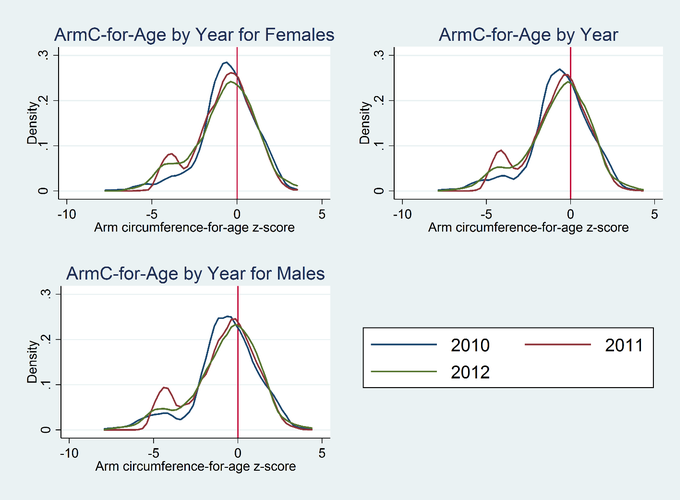 Figure A.4 from Paper - Distributions
Figure A.4 from Paper - Distributions
 Figure A.4 from Paper - Distributions
Figure A.4 from Paper - Distributions
My research investigates the determinants of child health, malnutrition, and vaccination coverage in the Kyrgyz Republic following the 2010 revolution. This study examines how community and family variables impact young children’s health amidst political and ethnic upheaval. The Kyrgyz Republic, a former Soviet state, faced significant challenges transitioning to a market economy post-1991, with notable instability marked by the 2005 Tulip Revolution and 2010 civil unrest. Focusing on two-parent households, the study found weak effects of household shocks on health outcomes, with economic shocks lowering health outcomes in four cases. Mother’s trust in doctors sometimes correlated with worse outcomes, while father’s trust had a limited positive effect. Proximity to health services was crucial; greater distances to hospitals generally correlated with poorer child nutrition and health. Regional differences indicated poorer health outcomes outside Bishkek, particularly in remote Mountain oblasts and southern regions. Parental education, especially the father’s, generally improved child health, while the age of the mother and child also correlated with better outcomes.